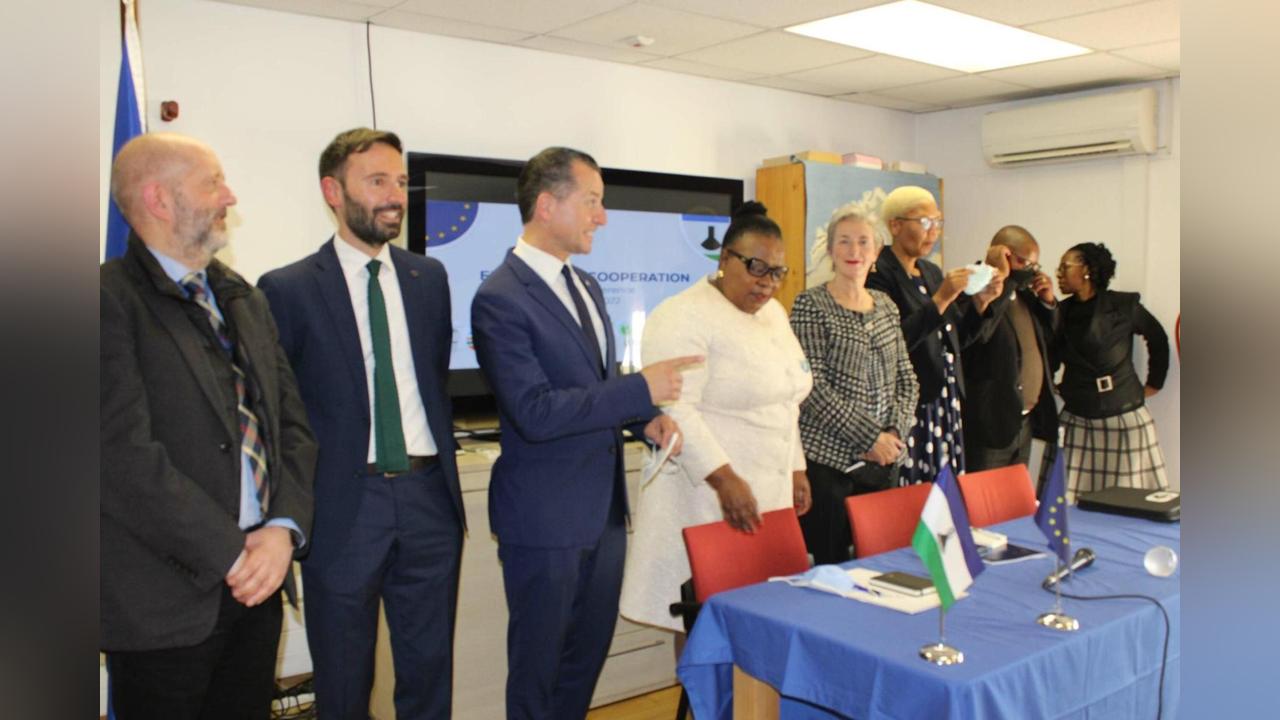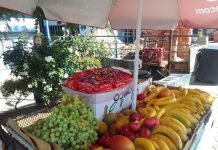Africa-Press – Lesotho. The European Union (EU) has thrown its weight behind an 84 million euro (about M1.4 billion) project to support a sustainable development initiative meant to maintain resilience of the country’s economy, good governance and ensure peace and justice.
The project, currently on the drawing board and expected to be adapted by the end of the year, will prioritize a green and resilient economy and a peaceful and just society, inclusive of a number of support measures.
Speaking to this publication about the EU’s strategic plan with Lesotho for the period of 2021-2027, EU Ambassador Paola Amadei said the project will complement projects already being implemented in the country by the Lesotho Lowlands Water Development Project (LLWDP) and the ReNOKA Integrated Catchment Management Project.
She said the new strategy is one of the first being adopted and its programming is one of the more advanced, not just on this continent, but globally.
Presenting the strategy, EU’s Head of Co-operation, Mario Giuseppe Varrenti, said priorities of the new strategy will be on water and sanitation, governance and social protection and on civil society and co-operation facility.
He said the project will, among others, ensure access to water and sanitation for all and sustainable management of water and land which at the moment are a challenge for many Basotho.
Varrenti said Lesotho currently loses about two percent of arable land to soil erosion and, as a result, food production in the country has declined. He also highlighted that a lot of Basotho are struggling to access water and sanitation and, with the strategic plan at hand, this too will be addressed.
Varrenti said the project would not only rehabilitate land and wetlands but would also empower Basotho so that they are able to produce their own food despite extreme weather conditions. He said land resources will be well managed through the project and communities will be put at the frontline in the interventions projects.
Varrenti further noted that their plan is to also reduce the country’s dependency on South Africa and Mozambique for electricity pointing out that the dependency not only costs the country a fortune but also contributes to climate change as the imported energy is produced from gas and coal.
He said the goal is to venture into clean energy using water, solar and wind, further stating that the project also aims for reliable and affordable clean energy, access to energy for all and improved energy sector leadership.
As of now, he said, 50 percent of households in Lesotho are electrified and their plan is to ensure that households in the rural areas are all electrified.
Also to be supported through the project are the national reforms, reliable and efficient social protection and collection of data for better policing.
The project is funded to the tune of €83 million – with €63 million allocated for green and resilience economy, €12 million for peaceful and just society and €8 million for support measures.
Varrenti furthered noted that the project is performance-based and is subject to accountability. The Minister of Foreign Affairs and International Affairs, ’Matšepo Ramakoae, said Lesotho has for many years been reaping the benefits from the EU through the Cotonou Agreement. The Cotonou Agreement is a treaty between the EU and the African, Caribbean and Pacific Groups of States (ACP countries).
Ramakoae noted that, among others, Lesotho has benefited around €124 million that was committed and disbursed for a group of support programmes, including areas related to water and sanitation, social safety nets, reforms in the justice sector, decentralisation, Covid-19 relief grants to vulnerable people and public fund management that is aimed at helping the government to improve service delivery to all people, pointing out that the new strategy will complement some of these projects that are ongoing.
“In the previous projects, Lesotho has benefited immensely in areas such as water and sanitation, budget support, support to civil societies, relief programmes and many others.
“The Cotonou Agreement expired in 2021 and negotiations for a successor agreement have been concluded and its signing is planned before the end of the year,” she said.
Ramakoae noted that the new programme, which is called Multi Annual Indicative Programme, is aligned with the national priorities as defined in the National Strategic Development Plan II and in line with the EU’s comparative advantages.
For More News And Analysis About Lesotho Follow Africa-Press






